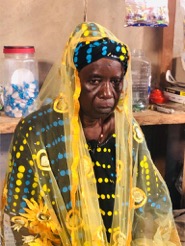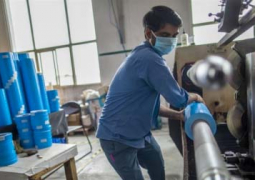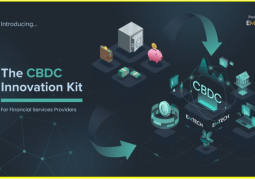
Tako Baldeh, a native of Yerobawol village in Wuli West District, Upper River Region has opened a bank account, a shop and bought a small ruminant (goat) from the Nafa Program.
The ‘Nafa’ Program component of The GambiaSocial Safety Net Project (SSNP) (a US$ 31 million project) is jointly funded by the World Bank and the Government of The Gambia.The ‘Nafa’ Program is designed to promote continuity and harmonization with other programs, by expanding an existing package of cash transfers with Social and Behavioural Change Communication (SBCC) managed by NaNA and partners.
The National Nutrition Agency (NaNA), Directorate Of Social Welfare and Department of Community Development are the implementing partners of the ‘Nafa’ Program.The Gambia SSNP is implemented in West Coast Region (WCR), Central River Region (CRR), North Bank Region (NBR), Lover River Region (LRR)and Upper River Region (URR) targeting 15,606 extremely poor households, this equates to approximately 40 percent of the extremely poor households in The Gambia.For a start, it was being piloted in Foni Bintang, Nainija and Wuli West Districts.
The Project Development Objective (PDO) is to improve the coordination of social assistance activities, provide temporary social assistance support to rural households in the wake of COVID-19, and increase inclusion of the extreme poor in the ‘Nafa’ Program.
The beneficiary selection was done using a Proxy-Means Test (PMT) which was followed by a community validation exercise in the poorest 20 districts of The Gambia. The regular revenue provided to extremely poor households is aimed at increasing both short-term consumption of essential goods, and enabling longer-term investments in human and productive capital.
Tailored SBCC provides information to beneficiaries and non-beneficiaries to encourage investments that can bolster human capital especially maternal and child health and nutrition, adolescence education and family planning; parenting and prevention of gender-based violence; and productive capital especially savings, entrepreneurship and agriculture to break the inter-generational cycle of poverty.In the three piloted districts, a total of Two Thousand, Seven Hundred and Seventy (2,770) beneficiary households each received D3000 every two months during the seven rounds of payment.
She explained that prior to the coming of the ‘Nafa’ Program, life was really difficult, saying: “I struggled to pay for my children’s school fees, buy them shoes, books, uniforms and give them lunch money but thanks to the ‘Nafa’ Program that is a thing of the past.”
She said any time she receives the Cash Transfer she will go to her husband and tell him that she has received the money and then buy a bag of rice from it for household use.
“I started my business with a ten liter gallon of palm oil. After receiving other Cash Transfers I also bought a bag of sugar. This was how I started until I was able to make some profit to be able to buy other basic household needs that I am selling today,” she added.
She went on to say that, as the business grows, she decided to also open a bank account from the ‘Nafa’ Cash Transfer and her profit. She did not only stop at opening a shop and a bank account but also bought a small ruminant.
She said she got the idea to open the shop and bank account as well as buy a goal after benefiting from the SBCC trainings and other sessions offered before any cash transfer by the project.
“The benefits of the ‘Nafa’ Program are immeasurable,” she stated, saying she has worked with several projects in the past but the ‘Nafa’ Program is exceptional.
She told her fellow beneficiaries that the project will not last forever, and therefore urged them to make best use of the monies they receive by not eating everything but investing part of it to ensure they can sustain themselves and the households when the project phases out.
“If any beneficiary of the ‘Nafa’ Program is committed and determined, they will be able to sustain themselves when the project phases out,” she further said.
“The ‘Nafa’ Program has ended my suffering and transformed my life and livelihood. We were extremely poor but today I can sustain myself and my household if the project phases out,” she said.
She thanked the World Bank and The Gambia Government for funding the project. She also thanked the implementing partners.
Samba Bah, Governor of the Upper River Region expressed satisfaction with the way the Cash Transfer is carried out by implementing partners, saying this is because an assessment was done to identify extremely poor households.
He observed that the Cash Transfer has positively impacted the lives and livelihoods of beneficiaries.
He pointed out that beneficiaries not only stop at receiving the money but are putting it togood use, with some investing in businesses and other ventures.
Governor Bah noted that the project has transformed the lives of many in his region and other parts of the country and therefore appeal to the World Bank and The Gambia Government to expand the project to other districts across the country and increase the duration of the project so that the poverty alleviation the country is yearning for is achieved.
Abdou Aziz Ceesay, Director of Social and Behavioral Change Communication at the National Nutrition Agency said as a nutrition agency responsible for all nutrition and nutrition-related activities in the country the success registered by the project is a dream come true for them.
He highlighted that, if you uplift the extremely poor from poverty, lifting households from poverty and building their resilience, will undoubtedly improve their health and nutritional status.
Mr. Ceesay pointed out that if the trend of success registered by beneficiaries continues we will drastically reduce malnutrition in the country and contribute to the socio-economic development of the country.
He said, the reason why the cash transfer is accompanied with Social and Behavioral Change Communication is to ensure beneficiaries invest part of the money in productive capital for resilient building and most importantly break the inter-generational cycle of poverty.
He called on other beneficiaries to emulate those that are already successful or have started micro-finance businesses.
“If some beneficiaries can do it, I believe any other beneficiary from any district can do the same thing,” he said. Director Ceesay expounded that the monies being given are not the ends and means of everything and therefore attending SBCC sessions is the most important activity to build beneficiary’s capacities to be able to use their resources in things that will increase their resource base. This he said will uplift themselves from poverty or even more from where they are to another level when the project phases out.
Director Ceesay said that the Project Coordinator and his team started discussions with the World Bank and The Gambia Government about the possibility to increase the coverage, resource envelope and duration of the project.
According to him, in The Gambia almost everybody is poor, it is just that our level of poverty defers.
He, therefore, appealed to funders to extend the project to other districts across the country and increase its duration to possibly 36 months.
He also appealed to the UN System, European Union, and other donor agencies to support The Gambia Government in trying to increase the number of beneficiaries supported by the Cash Transfer. The Director also promised that the intervention will have a direct impact on households in the country and thereby improve the health and nutrition of the population.
“No Social Safety Net or Social Assistance activity will last forever and I, therefore, urge beneficiaries to use the opportunity to increase their revenue base and get into other micro-finance activities to support their households so that when the project phases out they can turn around and get money from other avenues to support their households,” he concluded.




